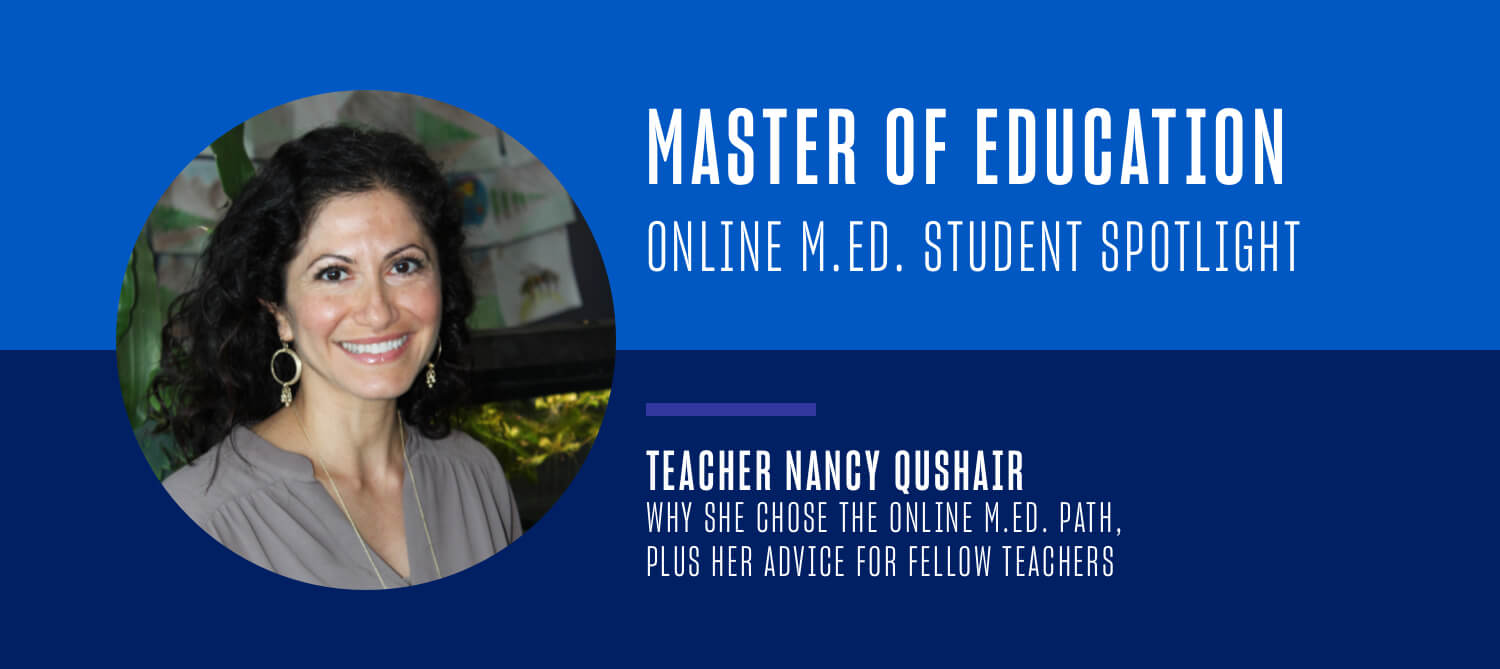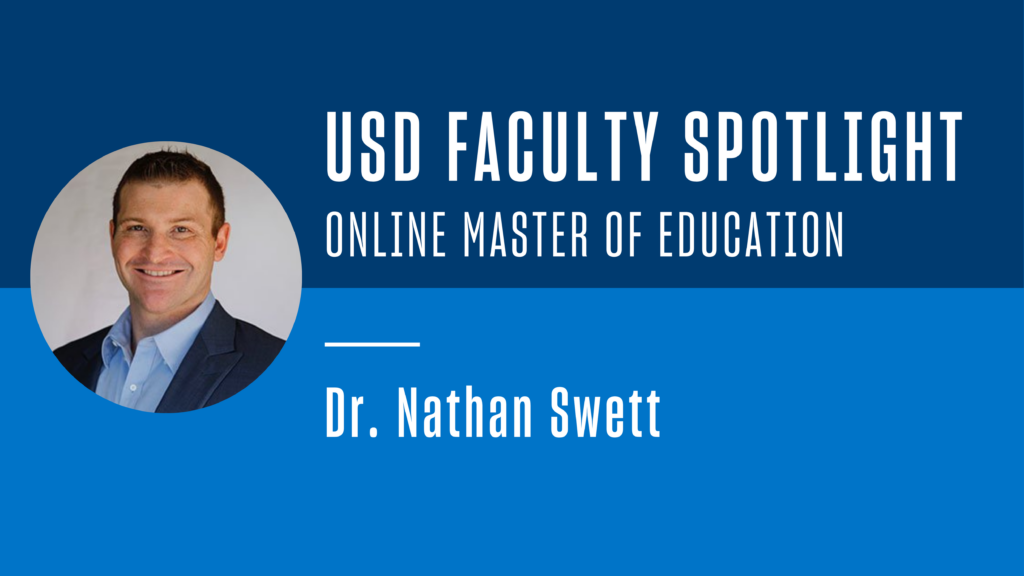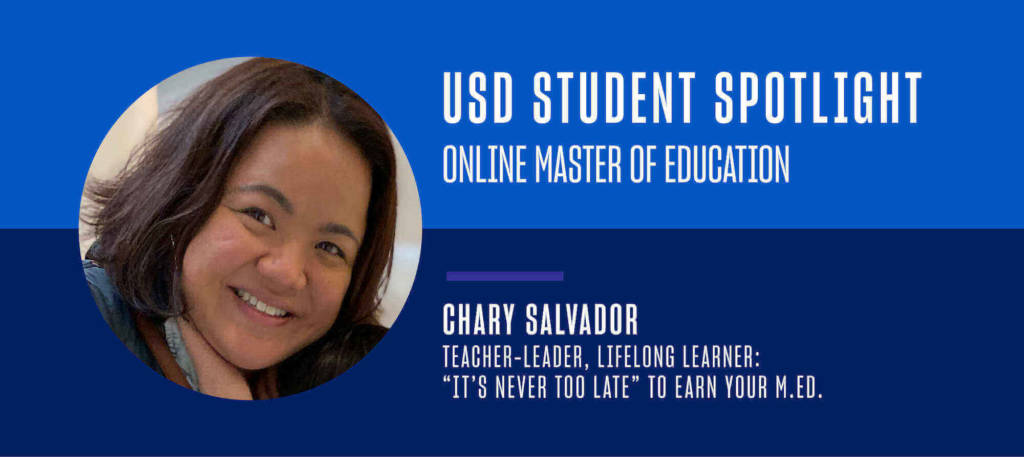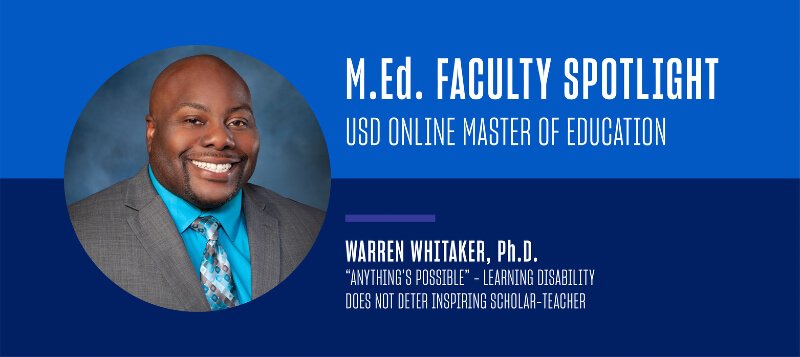Nancy Qushair happily admits that teaching math is not just her specialty. “It is my passion.”
Now in her 18th year at St. Mary’s — a private coeducational school in Aliso Viejo, Calif., whose mission statement is focused on the idea that “our students are inquirers” — she is also passionate about lifelong learning.
Her desire to follow her own curiosity in ways that help her more effectively engage and inspire her students prompted her to explore professional development opportunities related to math, as well as the science of learning.
Today, she describes her excitement of learning from such educational influencers as Carol Dweck, a noted psychologist and Stanford psychology professor, and Dr. Jo Boaler, a mathematics education professor at Stanford and author of “Limitless Mind” (spoiler alert: Nancy is in the book).
Much of Boaler’s work focuses on disrupting beliefs and biases that impact education and seeking the keys that unlock what she believes is each individual’s boundless learning potential — fascinating subject matter for Nancy, who has a particular interest in reaching students who say they hate math.
Additionally, her experience utilizing technology to help students learn remotely during the pandemic fueled a fresh desire to discover the most effective tools and strategies for using technology to facilitate and enhance students’ learning experience. All of this and more inspired her to return to school to earn her Master of Education degree.
‘Ready to expand my horizons’
At St. Mary’s, Nancy was responsible for simultaneously teaching students in her physical classroom, as well as those who were connected virtually.
“I was in a classroom with a webcam [and] all my synchronous and asynchronous lessons had to be presented and then shared digitally, so that they could access the information 24/7,” she said. Inspired by the growing importance of technology, she thought to herself, “I think I’m ready to expand my horizons.”
Her decision to go back to school for a master’s degree was strongly influenced by a desire to help her students cultivate essential 21st century skills such as digital literacy, and how that connects to researching, critical thinking and problem solving. “I thought, if I’m going to tell my students to research and think critically and problem solve and do all this, I myself need to be an example.”
As a busy working mom, she wanted to find a high-quality MEd program that she could complete fully online. “So I actually searched for the best online programs in education, and USD came up high on that list.”
What sealed the deal was her discovery that the University of San Diego had recently launched a new specialization within its highly regarded program – an MEd in Technology and Innovation.
In math, as with any discipline, “I think there’s a need to approach our students these days in a more engaging and innovative way,” she said, “and one of those ways is to approach it with technology.”
Hard work + flexible scheduling = an exhilarating MEd experience
Being back in the USD virtual classroom as a student has energized Nancy in ways she was not necessarily expecting when she contemplated the challenges of balancing her busy teaching schedule with her MEd work.
“You know, at the end of the day I am wiped. Yet, I come home, and I’m still really inspired to open the book, open the next article and continue reading and learning,” she said, describing her stimulating MEd studies as “almost like a break from my day.”
Fueling that excitement was her realization that she could immediately apply what she was learning at USD in her own classroom. For example, she said of a course called Digitized Learning with Technology, “I applied every single assignment into my class, and the feedback from the students has been very positive. In fact, they actually say, ‘Are we going to get another HyperDoc this week?’”
Other examples of courses she has found inspiring include:
- Cognition & Learning — A course taught by Dr. Bobbi Hansen that zeroes in on Nancy’s fascination with cognitive processes, reasoning, problem-solving and the impact of socio-cultural foundations of learning. “Dr. Hansen’s course has motivated me to lead professional development on Neuroscience and Education at my school site,” she said.
- Social Justice and Educational Equity — A course exploring how issues of inclusivity, inequity, conflict and social justice impact the American educational system; taught by Dr. Joseph Lathan, who is also the academic director of the USD MEd program. “He’s amazing, very knowledgeable; and he’s really inspired me,” said Nancy.
“The instructors are all highly qualified, extremely knowledgeable in their field, and they are so quick to respond,” she added. “And then the feedback they provide is so encouraging and supportive. It’s just been a very positive start to the program.”
In terms of the virtual classroom experience, she said, “Everything I need has an electronic paper trail. That’s really helpful.” The flexibility of the online program is also helpful for Nancy. “I can stop at lunch, and be a student at lunchtime if I need to. I can work after school, after dinner’s done, and before I go to bed.”
And since the program is not tied to a physical classroom or campus, the experience typically involves making connections with fellow educators from across the country and around the globe. “I can connect with my classmates that are in Taiwan,” said Nancy, noting that the program “gives me that opportunity to learn from colleagues all over the world.”
Thinking about the MEd path? — ‘Just go for it’
For Nancy, earning her MEd online through the University of San Diego certainly connects back to her passions as an educator.
Writing about her own approach to education in a speaker bio for a recent national math conference, she described her passion for “motivating students to have a growth mindset while inspiring them to inquire about topics, make connections, apply concepts to real life, and work collaboratively with others with pursuit of knowledge and discovery.”
Her message to other teachers who may be thinking about earning their master’s degree but are hesitant because of the time commitment and the additional work is: “Just go for it.”
“It’s never too late,” she said, adding, “It’s not easy, [but] I feel that there’s a need for us as adults to get out of our comfort zone … because we have to learn and be able to provide [students] with the best skills that they are going to need in their future.”




